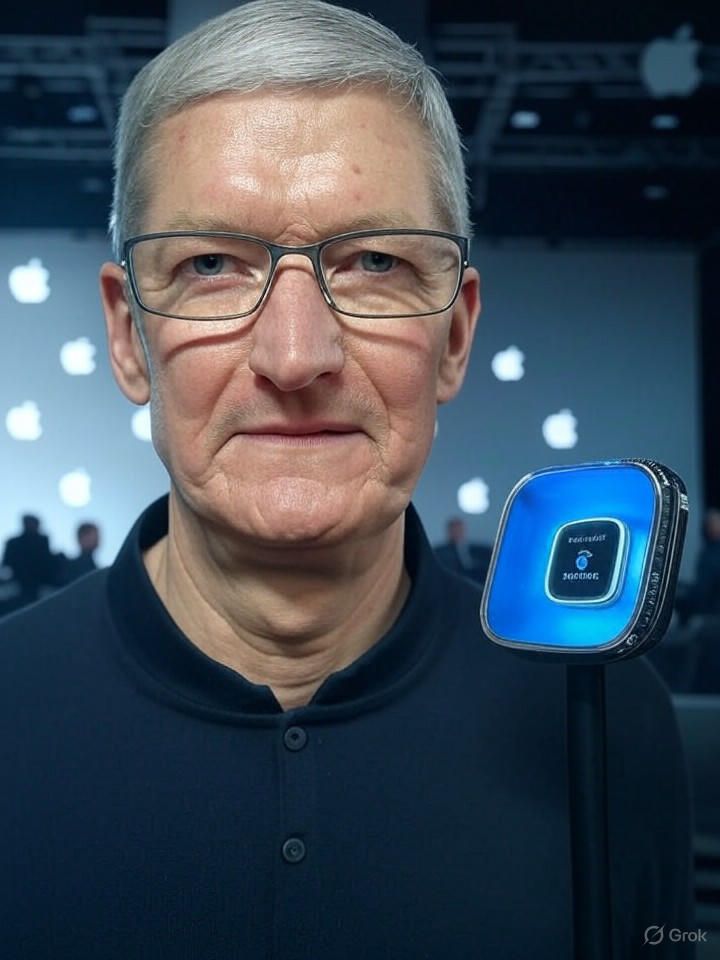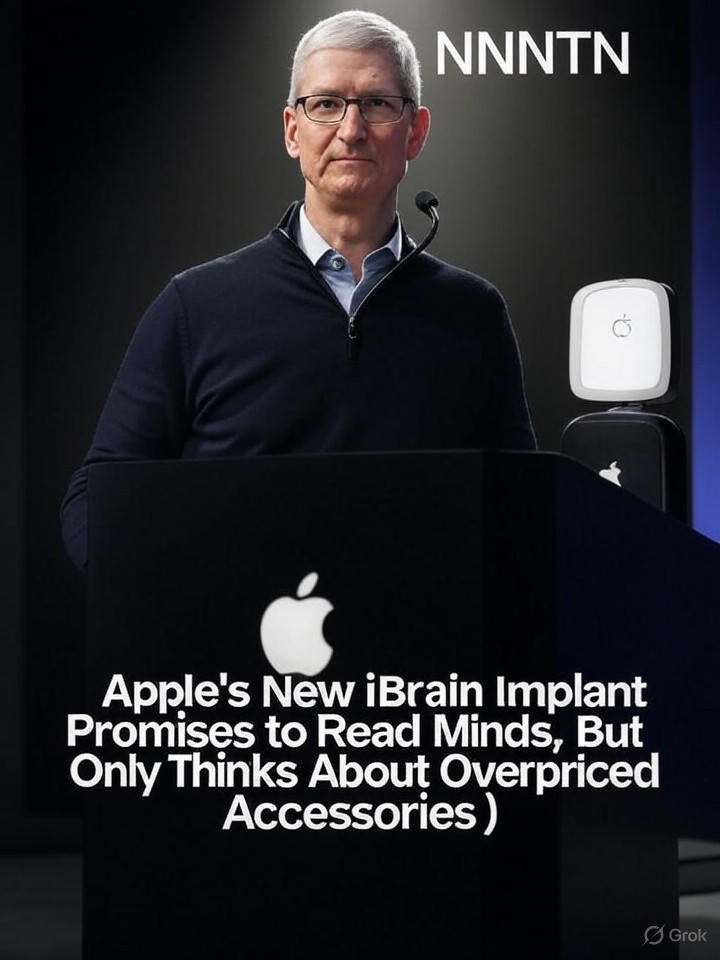CUPERTINO, CA - In a keynote that had tech enthusiasts foaming at the mouth like rabid squirrels, Apple CEO Tim Cook introduced the iBrain, a revolutionary neural implant designed to read your thoughts and immediately convert them into purchases from the Apple Store. 'Imagine thinking about a new iPhone case and poof—it's already on its way,' Cook enthused, while subtly ignoring the privacy implications that make Orwell's 1984 look like a bedtime story.
The iBrain, surgically implanted via a quick outpatient procedure that only costs as much as a small car, promises seamless integration with your neural pathways. But early beta testers report that instead of pondering life's great mysteries, the device keeps suggesting you buy more Lightning cables. 'I was thinking about world peace,' said one tester, 'and suddenly my cart was full of $19 USB adapters. It's like having a pushy salesman living in your head.'
Critics are already raising alarms about the potential for mind control, but Apple assures users that the iBrain only accesses 'non-essential' thoughts, like your deepest desires for overpriced dongles. Privacy advocates, meanwhile, are picketing outside Apple Park, chanting slogans like 'Get out of my head, you capitalist overlords!' Apple's response? A limited-edition protest-themed wallpaper available for download at just $4.99.
In a demo that wowed the audience, Cook thought about coffee, and the iBrain instantly ordered a $799 espresso machine from the Apple ecosystem. 'See? It's not reading your mind; it's enhancing your lifestyle,' he explained, as the device helpfully suggested pairing it with a $129 stand. Forgotten are the days of aimless daydreaming—now every idle thought is a revenue opportunity.
But not everyone is sold. Neurologists warn that constant exposure to Apple's ecosystem could lead to 'iAddiction,' a condition where users start speaking in emoji and refuse to interact with non-Apple devices. One doctor quipped, 'This isn't innovation; it's inception for impulse buys.' Apple, undeterred, plans to roll out iBrain Pro for those who want to think about even more expensive accessories.
As the launch date approaches, conspiracy theorists are buzzing that the iBrain is just a ploy to harvest brain data for targeted ads. 'Next thing you know, it'll suggest therapy sessions via Apple Health, but only if you buy the premium subscription,' joked a skeptic. In the world of Apple, it seems the only thing truly private is how much they're profiting from your subconscious.
Whether the iBrain will change the world or just your bank account remains to be seen. But one thing's for sure: in the future, your thoughts won't be your own—they'll be copyrighted by Apple Inc.

